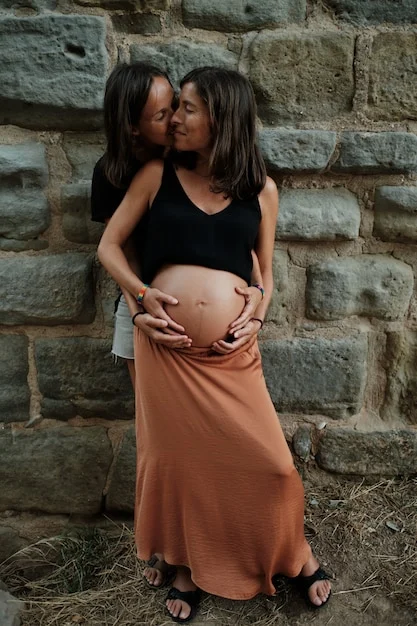Parenting
I tend to talk a lot—sometimes too much. I’m the queen of oversharing, often finding myself in the midst of a word avalanche over the simplest topics. It’s just my nature—too open for my own good. But it has definitely sparked some intriguing conversations.
Recently, I chatted with a new acquaintance from work who asked about my life—kids, vacations, the usual small talk. When she inquired about my marital status, I replied, “No, but I’m still in a relationship with my child’s father. We’re together, just not living together.”
Her reaction was the same puzzled look I often get. Many people struggle to understand this unconventional arrangement, and given our generational differences, her concern was heightened.
Then she said, “Well, that’s an interesting setup. So much dysfunction for kids these days. I guess broken homes are the norm with all the divorces. No one stays together anymore.”
Dysfunction—ugh, I can’t stand that word when it comes to families.
Broken—don’t even get me started on that word in relation to a home.
It made me ponder: How did we ever end up labeling divorced families as “dysfunctional”? I’m asking rhetorically, of course, but my irritation remains.
This notion that divorce equals dysfunction and brokenness should not be a prevailing idea. Sure, those feelings can exist during a divorce, but they shouldn’t define a family. What awful labels to attach! Although these terms are less frequent now, given the prevalence of divorce, it’s time we stop using such derogatory words for families that don’t fit the fairytale mold.
My family isn’t dysfunctional, nor is it broken. My child doesn’t need to internalize those labels. If her father and I had remained in our marriage—a relationship that was, at the time of our separation, quite unhealthy with arguments and tension—wouldn’t that have been truly broken? Wouldn’t that have been dysfunctional?
Now, she has two homes. She spends some nights at one and the rest at the other. Sure, this setup has its challenges, and we had our concerns when making this drastic change. But at the end of the day, she has two parents who love her deeply. Our family functions perfectly well despite the “divorce” label. No one is broken here.
Sure, hearts may have been bruised in the process of divorcing, but they’re healing, and they won’t stay broken. So let’s ditch the idea of “broken.” Our new normal is not dysfunctional. We need to abandon the unrealistic ideals of what a family should look like. Perfection is a myth, and we all know that. It’s time to eliminate these stigmas.
Everyone is doing the best they can to navigate their new normal—those of us who have experienced separation and divorce. It’s rarely easy, often messy, and can definitely get ugly. But let’s be honest: it probably wasn’t a fairy tale even when we were married.
It’s about redefining, not dysfunction. Not brokenness.
We know divorce leaves its mark on children, and as parents, we’re acutely aware of this. But we don’t need ugly labels to emphasize it. We don’t need society to paint us as people who simply gave up on marriage, as if it was that simple, as if we didn’t try. Only we know the reality behind our closed doors and the reasons behind our decisions to function and thrive the best we can.
This also applies to divorced families who have remarried or blended families with stepchildren. These families can be beautiful, extended units. They might not fit the picture-perfect fantasy we often see at kids’ soccer games, with everyone wearing matching shirts proclaiming their roles. But they all strive to function as best as they can. They all love.
Once again, love prevails. Love for our kids is a constant—always. As parents, every decision we make is centered around our children. The last thing we want is for them to feel labeled as “broken” or “dysfunctional.”
Can we collectively do better? Can we look at a divorce situation without judgment and acknowledge that this family did the best they could then and continues to do the best they can now? I didn’t grow up in a divorced household, but many friends who did have turned out to be amazing, fully functional, and successful individuals. They are not worse off and definitely not broken.
All families are unique and beautiful in their own right. They are functional in their own way, without needing to chase after perfection. They simply need love.
For more on navigating family dynamics, check out this post on intracervicalinsemination.com/blog. If you’re looking for resources on home insemination, visit Make a Mom for an excellent guide. Additionally, for support on female infertility, Drugs.com provides some fantastic resources.
In summary, we need to change the narrative around divorced families. They are not dysfunctional or broken; they are just different, and they thrive on love.
